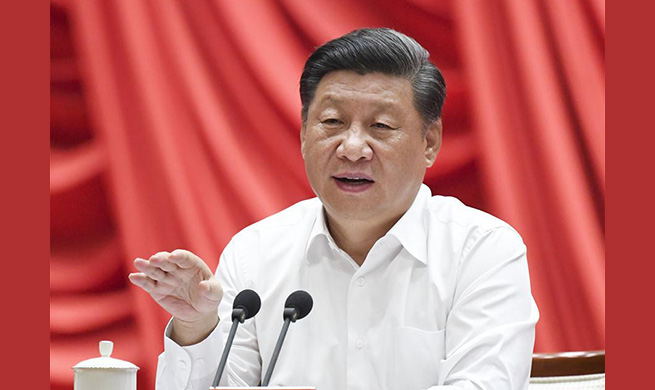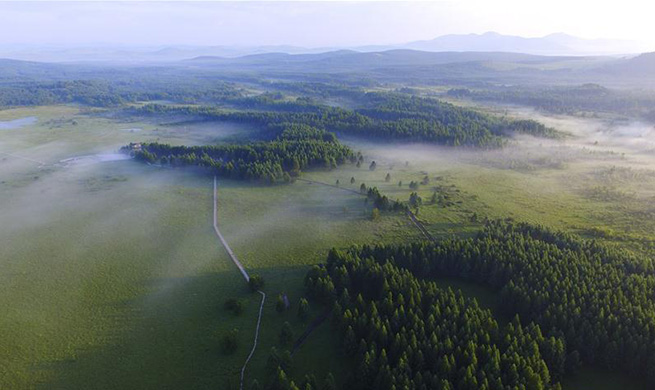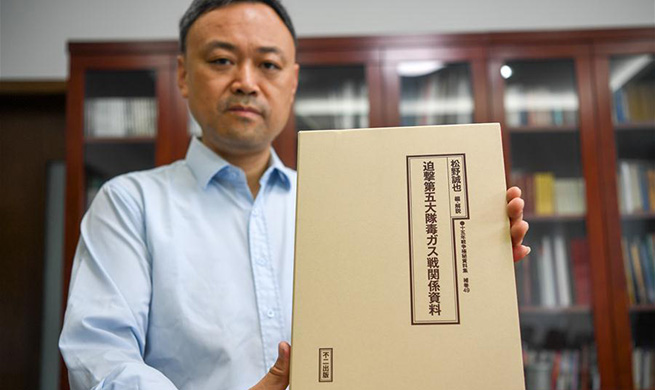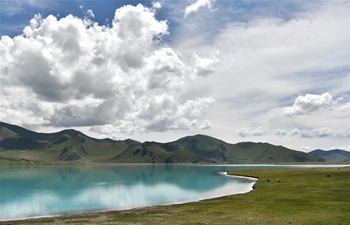By Xinhua writers Cao Bin, Wang Yangang
LHASA, Sept. 3 (Xinhua) -- Wang Jianguo, 70, didn't have a name until he was 20.
Wang was born a serf in old Tibet's Nagqu. His parents, both beggars at the time, sent him to work for a noble family to avoid starvation when he was just eight.
He herded sheep in the day, and slept in a sheepfold at night, in exchange for a pitiful amount of tsampa that could barely fill his stomach.
He only had a rug made of ragged sheepskin on his back even in winter, using it as a cover when he was sleeping. But he couldn't sleep well, not only because of the cold, but also due to the pain in his knees and feet, as they were exposed all year round.
"Serfs like me had nothing to eat or wear. Some were so hungry that they would steal a lamb or a yak, risking eye-gouging or leg-breaking if they were caught and handed over to the old government," he recalled.
He often saw his master strip serfs and tie them to wooden columns, before whipping them ruthlessly. "A hundred lashes was the most lenient punishment I counted, sometimes it could amount to several hundred."
"The master even unleashed dogs to attack you at night." He can still remember the fear and terror, even though he was very young at the time.
Also as a serf, he didn't deserve a name.
His parents called him Nima, and people around him called him "Nima the serf" after he was sent to serve his master. It was his very first name.
In 1959, the theocratic feudal serf system was abolished in Tibet. Wang, turning 10 that year, reunited with his parents. The family received sheep and yaks from the new government. With property, they finally had a stable life.
Ten years later, he spent almost two days, walking nearly 100 km to a nearby county to enlist. During registration, he was asked for his name. But he couldn't answer.
He said his brother who joined the army several years earlier gave himself a Han name Wang Yongjun -- Wang from his father's Tibetan name of Wangdui, and Yongjun meaning "support the army."
A soldier was inspired and said: "Why don't you name yourself Wang Jianguo, as you were born in 1949, the same year the People's Republic of China was founded."
In Chinese, Jianguo literally means "the founding of the state." It is a popular name in China for people born in 1949 to mark the founding of New China.
So the 20-year-old had an official name for the first time in his life.
A year after, he joined the Communist Party of China when he was working on the frontline. In 1988, he was demobilized as the head of a local armed forces department and transferred to a new post -- a deputy Party secretary of the transport department of Nagqu Prefecture, now a city.
In old Tibet, over 95 percent of the population were serfs. But thanks to the peaceful liberation and democratic reform in Tibet, those people's lives were completely transformed.
In 1993, Wang applied for an early retirement due to health issues. When asked if he had any other requirements, he said he had only one wish: to take the Chairman Mao bust in his office with him.
Wang and his wife and son now live in a two-storey house with a courtyard in a nice neighborhood in downtown Lhasa, capital of Tibet Autonomous Region. The Mao bust is placed in the most prominent position in the living room.
"Without Chairman Mao, there would be no life with dignity for Tibetan people. The bust has become the most treasured thing in my family," he said.
Tibet has been through peaceful liberation, democratic reform, establishment of the autonomous region and reform and opening-up over the past 70 years, realizing the fundamental transformation of its social institutions and all-round social progress. Once the oppressed, the people have become the main force in modernizing Tibet.
"I owe everything I've got to the Party," he said.

















